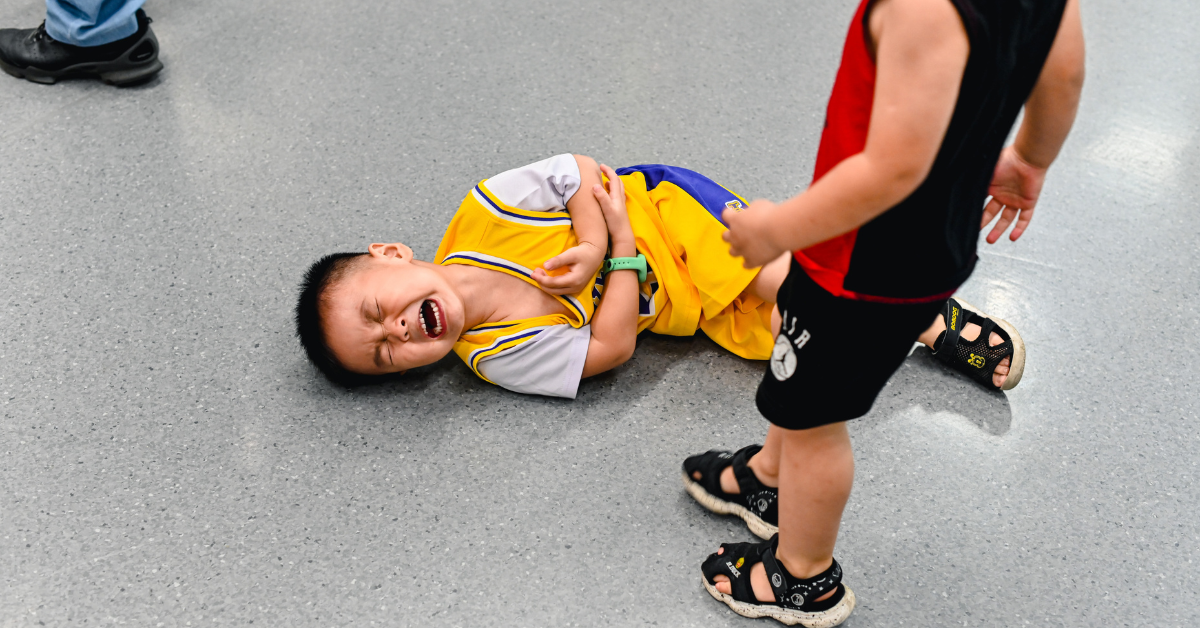
Jan 27, 2023 8:45:00 AM
by Lane Wright
A while back, my fourth grader came home and told me about a student who threw a chair in his class. I can’t remember what the student was mad about, or if he was even mad.
Another day, that same child went from table to table breaking everyone else's pencils in half until the teacher stopped him. Clearly this child had little-to-no self-regulation in those moments. He had gone off his emotional rails. How well do you think his math lesson went that day?
We all have bad days from time to time; hopefully we’re not destructive. But an emotional storm, even one that’s brewing below the surface, can inhibit us from doing our best work and our best thinking. What’s challenging for you and me is even more so for children.
The Connection Between SEL and Life Success
Social and emotional learning (SEL) skills play a crucial role in the academic success and well being of a child. A 2011 study found that “compared to controls, students demonstrated enhanced social and emotional learning skills, attitudes, and positive social behaviors following intervention, and also demonstrated fewer conduct problems and had lower levels of emotional distress. Especially noteworthy from an educational policy perspective, academic performance was significantly improved.”
I particularly like this study because the researchers reviewed a lot of other research: 213 studies from the 1950s through 2007 involving more than 270,000 K-12 students.
The interventions included lessons on empathy, self-awareness, self-management, social awareness, relationship skills and responsible decision-making.
Helping kids learn how to deal with big emotions and how to “play well with others” aren’t just quaint ideas. These interventions are becoming increasingly critical for the academic success and overall well being of students.
By the time students get to high school, “as many as 40%-60% of students become chronically disengaged from school.” Compound that with the fact that about “30% [of] high school students engage in multiple high-risk behaviors” — drugs or alcohol use, sex, violence, depression and attempted suicide — it’s no wonder so many students fall behind in school and put their future aspirations in jeopardy.
The Role Schools Should Play
In some families, children are taught self-regulation, goal-setting, conflict resolution and other social and emotional skills in the home, at their religious services or in other community contexts. But what about children who don’t attend religious services or don’t have parents or guardians teaching them those skills?
Sure, some kids will start to figure it out quicker than others. But without caring and intentional instruction, chances are slim that a child will learn these skills on their own before making choices that limit their opportunities in life.
That’s why it’s so important for schools to help fill that gap for those who aren’t getting that kind of instruction, and reinforce the lessons for those who are. School is a great place to practice those skills.
Nobody wants to see kids throwing chairs (unless it’s the zombie apocalypse) or breaking pencils. We all want children who are emotionally resilient and academically strong. We want our kids to grow up knowing how to deal with challenges, how to get along with others and how to make good decisions that will help them reach their goals.
Giving them that strong foundation while they’re young will help them develop into well-adjusted adults who can continue developing social skills and emotional intelligence for the rest of their lives.
Lane Wright is Director of Communications and Advocacy for the National Council on Teacher Quality, and formerly served as Director of Strategic Growth for Education Post and brightbeam. Lane has more than 18 years of experience in strategic communications and education advocacy. He tells stories that help families understand how their schools are doing, how to make them better, and how policy plays a role.
Few issues in education spark more tension and debate than standardized testing. Are they a tool for equity or a burden on students? A necessary check on school systems or a flawed measure of...
Charter schools are public schools with a purpose. Operating independently from traditional school districts, they're tuition-free, open to all students, and publicly funded—but with more flexibility...
Despite the benefits of a diverse teaching force, prospective teachers of color fall out of our leaky preparation pipeline at every stage: preparation, hiring, induction, and retention. Here’s what...
Ed Post is the flagship website platform of brightbeam, a 501(c3) network of education activists and influencers demanding a better education and a brighter future for every child.
© 2020-2025 brightbeam. All rights reserved.
Leave a Comment